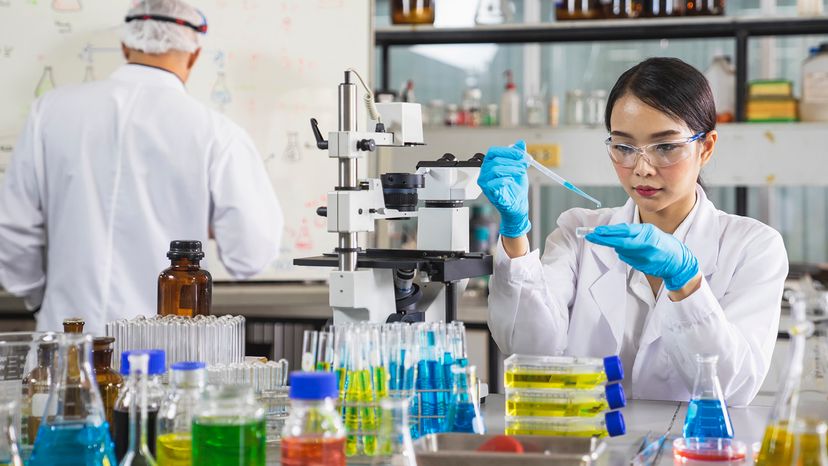Advertisement

The Independent Variable vs. Dependent Variable in Research
- Share Content on Facebook
- Share Content on LinkedIn
- Share Content on Flipboard
- Share Content on Reddit
- Share Content via Email

In any scientific research, there are typically two variables of interest: independent variables and dependent variables. In forming the backbone of scientific experiments , they help scientists understand relationships, predict outcomes and, in general, make sense of the factors that they're investigating.
Understanding the independent variable vs. dependent variable is so fundamental to scientific research that you need to have a good handle on both if you want to design your own research study or interpret others' findings.
To grasp the distinction between the two, let's delve into their definitions and roles.
What Is an Independent Variable?
What is a dependent variable, research study example, predictor variables vs. outcome variables, other variables, the relationship between independent and dependent variables.
The independent variable, often denoted as X, is the variable that is manipulated or controlled by the researcher intentionally. It's the factor that researchers believe may have a causal effect on the dependent variable.
In simpler terms, the independent variable is the variable you change or vary in an experiment so you can observe its impact on the dependent variable.
The dependent variable, often represented as Y, is the variable that is observed and measured to determine the outcome of the experiment.
In other words, the dependent variable is the variable that is affected by the changes in the independent variable. The values of the dependent variable always depend on the independent variable.
Let's consider an example to illustrate these concepts. Imagine you're conducting a research study aiming to investigate the effect of studying techniques on test scores among students.
In this scenario, the independent variable manipulated would be the studying technique, which you could vary by employing different methods, such as spaced repetition, summarization or practice testing.
The dependent variable, in this case, would be the test scores of the students. As the researcher following the scientific method , you would manipulate the independent variable (the studying technique) and then measure its impact on the dependent variable (the test scores).
You can also categorize variables as predictor variables or outcome variables. Sometimes a researcher will refer to the independent variable as the predictor variable since they use it to predict or explain changes in the dependent variable, which is also known as the outcome variable.
When conducting an experiment or study, it's crucial to acknowledge the presence of other variables, or extraneous variables, which may influence the outcome of the experiment but are not the focus of study.
These variables can potentially confound the results if they aren't controlled. In the example from above, other variables might include the students' prior knowledge, level of motivation, time spent studying and preferred learning style.
As a researcher, it would be your goal to control these extraneous variables to ensure you can attribute any observed differences in the dependent variable to changes in the independent variable. In practice, however, it's not always possible to control every variable.
The distinction between independent and dependent variables is essential for designing and conducting research studies and experiments effectively.
By manipulating the independent variable and measuring its impact on the dependent variable while controlling for other factors, researchers can gain insights into the factors that influence outcomes in their respective fields.
Whether investigating the effects of a new drug on blood pressure or studying the relationship between socioeconomic factors and academic performance, understanding the role of independent and dependent variables is essential for advancing knowledge and making informed decisions.

Correlation vs. Causation
Understanding the relationship between independent and dependent variables is essential for making sense of research findings. Depending on the nature of this relationship, researchers may identify correlations or infer causation between the variables.
Correlation implies that changes in one variable are associated with changes in another variable, while causation suggests that changes in the independent variable directly cause changes in the dependent variable.
Control and Intervention
In experimental research, the researcher has control over the independent variable, allowing them to manipulate it to observe its effects on the dependent variable. This controlled manipulation distinguishes experiments from other types of research designs.
For example, in observational studies, researchers merely observe variables without intervention, meaning they don't control or manipulate any variables.
Context and Analysis
Whether it's intentional or unintentional, independent, dependent and other variables can vary in different contexts, and their effects may differ based on various factors, such as age, characteristics of the participants, environmental influences and so on.
Researchers employ statistical analysis techniques to measure and analyze the relationships between these variables, helping them to draw meaningful conclusions from their data.
We created this article in conjunction with AI technology, then made sure it was fact-checked and edited by a HowStuffWorks editor.
Please copy/paste the following text to properly cite this HowStuffWorks.com article:
